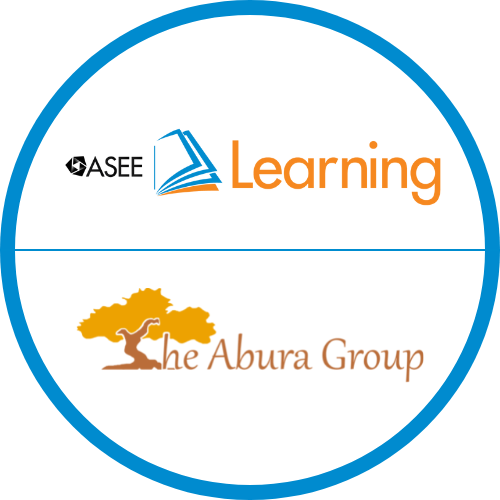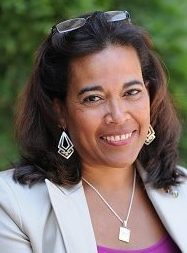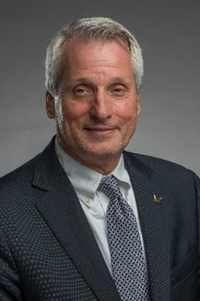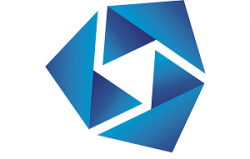Evaluating Diversity Statements: Improved Inclusivity & Convergent Thinking is designed to lead participants in understanding the relationship between diversity statements and convergent thinking in order to discover fundamental insights about the applicants’ attitude, skills, and knowledge concerning working in a truly inclusive, diverse, and convergent environment.
Type: Instructor-Led Course
Delivery Method: Live Online
Level: Foundational, Intermediate
Duration: 4 hours

Overview
Evaluating Diversity Statements: Improved Inclusivity & Convergent Thinking is an instructor-led online workshop for educators, administrators, and staff who seek to better understand the relationship between diversity statements and convergent thinking. One tool emerging when assessing a new employee or team member is diversity statements. During this workshop participants will learn how to understand and evaluate these statements, not only for the sake of diversity and inclusion, but to enhance convergence thinking as desired in NSF research.
Participants will see the theoretical and practical connections of using a convergent approach to develop ways to understand the many ways that a diversity statement helps to find the best applicants for the organizational cultures we must develop. Through the use of case studies, the participants will see the KSAs and ideas that can be discovered or revealed in diversity statements. Finally, the participants will learn how to develop appropriate rubrics for different organizational cultures for judging the strengths of diversity statements.
This workshop takes place in two, 2-hour (120 minute) instructor-led sessions. Throughout the workshop, there will be numerous opportunities to interact with the facilitator and other participants, with ample time provided for questions, discussion, and reflection.
How You Will Benefit
• You will learn the relationship between diversity statements and convergent thinking.
• You will be able to apply a convergent approach to discover the relationship between diversity statements and the organization’s core values.
• You will engage with a like-minded network of professionals outside of your university and discipline.
• You will receive the knowledge and tools to develop rubrics for judging the strength of candidates’ diversity statements depending on the convergence culture and leadership position needed.
Intended Audience
This workshop is intended for educators, administrators, and staff who seek to better understand and evaluate diversity statements to find the best applicants for their organizational culture and leadership positions.
Learning Outcomes
By the end of this workshop, you will be able to:
- Apply a convergent approach to discover the relationship between diversity statements and their organization’s core values.
- Describe the many ways that a diversity statement helps to find the best applicants for the organizational cultures we must develop.
- Examine the knowledge, skills, and abilities (KSAs) and ideas that can be discovered, or revealed, in a diversity statement.
- Create appropriate rubrics for different organizational cultures for judging the strengths of an applicant’s diversity statement.
 Dr. Bevlee Watford is the Associate Dean for Equity and Engagement and the Executive Director of the Center for the Enhancement of Engineering Diversity (CEED) at Virginia Tech. The Equity and Engagement office is responsible for the recruitment and retention of diverse students, both undergraduate and graduate. This includes a wide array of programs developed and implemented for precollege students as well as programs supporting the academic, professional and personal development of current students.
Dr. Bevlee Watford is the Associate Dean for Equity and Engagement and the Executive Director of the Center for the Enhancement of Engineering Diversity (CEED) at Virginia Tech. The Equity and Engagement office is responsible for the recruitment and retention of diverse students, both undergraduate and graduate. This includes a wide array of programs developed and implemented for precollege students as well as programs supporting the academic, professional and personal development of current students.
Dr. Watford has worked at Virginia Tech since 1992, becoming associate dean in 1997. Her professional interests are focused on ensuring that all students who desire an engineering degree are successful. She is particularly interested in helping under-represented students achieve their educational and professional goals, whether these goals are in engineering or any other field. Dr. Watford earned all of her degrees from Virginia Tech’s College of Engineering (BS Mining Engineering, MS and PhD in Industrial Engineering and Operations Research).
Dr. Watford served as President of the American Society for Engineering Education (ASEE) in 2016 – 2017, as the Society’s first African American female president.

Dr. P.K. Imbrie is Professor and Head of the Department of Engineering & Computing Education at the University of Cincinnati. He is an advocate for research-based approaches to engineering education, curricular reform, and student retention. He conducts both traditional, as well as educational research in experimental mechanics, piezospectroscopic techniques, epistemologies, assessment, and modeling of student learning, student success, student team effectiveness, and global competencies He helped establish the scholarly foundation for engineering education as an academic discipline through lead authorship of the landmark 2006 JEE special reports “The National Engineering Education Research Colloquies” and “The Research Agenda for the New Discipline of Engineering Education.” He has a passion for designing state-of-the-art learning spaces. While at Purdue University, Dr. Imbrie co-led the creation of the First-Year Engineering Program’s Ideas to Innovation (i2i) Learning Laboratory, a design-oriented facility that engages students in team-based, socially relevant projects. While at Texas A&M University he co-led the design of a 525,000 square foot state-of-the-art engineering education focused facility; the largest educational building in the state.
Dr. Imbrie’s expertise in educational pedagogy, student learning, and teaching has impacted thousands of students at the universities for which he has been associated. He is internationally recognized for his work in active/collaborative learning pedagogies and is a co-author of a text on teaming called Teamwork and Project Management. His engineering education leadership has produced fundamental changes in the way students are educated around the world. His current research interests include: epistemologies, assessment, and modeling of student learning, student success, student team effectiveness; experimental mechanics; and piezospectroscopic techniques. Dr. Imbrie received his B.S., M.S. and Ph.D. degrees in Aerospace Engineering from Texas A&M University and is an ASEE Fellow.
Requirements and Resources
Supplemental Resources: You will be provided with (1) a participant guide, (2) presentation slides, and (3) workshop recordings.
Attendance and Completion
Full and active participation will enhance the learning experience for all participants. At the end of the workshop, you will receive a certificate of completion via email. Professional development hours (PDH) will be provided upon request.
Terms and Policies
• Cancellation Policy
• Recording and Privacy Policy
If you have questions, please contact learning@asee.org.

